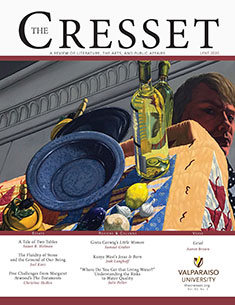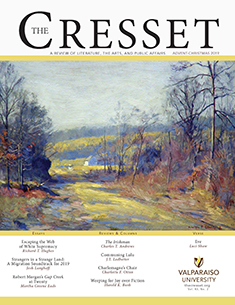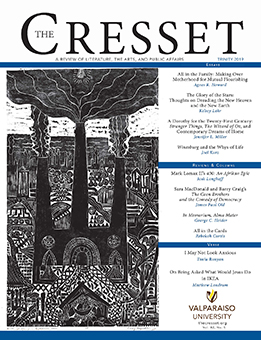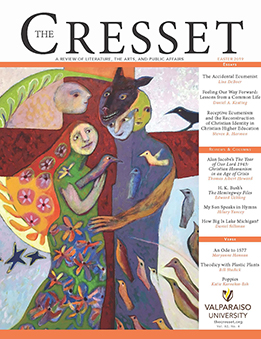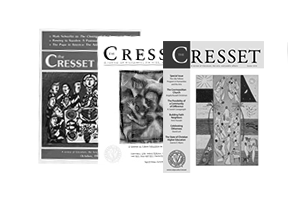Hollywood has always had a love affair with happy endings. Disney made a fortune by spinning grisly fairy tales into the purer gold of films like The Little Mermaid, in which Ariel wins the prince, gets her voice back, and lives happily ever after instead of dissolving into foam on the surface of the ocean. What screenwriters and directors decide to change says a lot about what Americans go to the movies to see, and about how we are willing and unwilling to be challenged. When it comes to our children, we are protective. We would rather they not go home with the memory of the evil queen in Snow White dancing to her death in hot iron shoes, which was the way that the brothers Grimm ended their original tale.
When a screenwriter radically re-writes the ending of a story meant for adults, the changes reveal much more about what we think we want, at least when we escape to the movies. One of the most revelatory adaptations in recent times is Leslie Dixon’s 2011 screenplay Limitless. Directed by Neil Burger, Limitless retells the story of Eddie Spinola, a character from Alan Glynn’s novel The Dark Fields (2001), who takes an experimental drug to increase his brain power. The differences in title tell it all: Dixon replaces Glynn’s grim warning with the promise of a limitless future. While Glynn’s book explores both the moral and physical limits to cognitive enhancement, Leslie’s screenplay reflects how much Americans want those limits to disappear. This change in screenplay is more than just an innocuous Hollywood scrub job on fanciful science fiction. Since we live in a world where there are new developments in psychopharmaceuticals every day, there are serious dangers in such a blithe dismissal of Glynn’s warning.
The book and the film share an identical premise. Eddie (Bradley Cooper) is a failed writer who runs into his ex-wife’s brother on the streets of New York City. Gant, the ex-brother-in-law, claims to have cleaned up his drug-dealing ways and to work for a legitimate pharmaceutical company. Gant offers Eddie a little pill called NZT which will help him to “access all of his brain” instead of the paltry 20 percent we are all accustomed to. Since Eddie thinks he has nothing to lose, he takes it. Almost immediately his synapses begin to fire in a way he has never experienced. He not only begins to remember everything he has read, but is able to process and organize it too. He gains a burst of energy, finishes his book, easily learns other languages, manipulates the stock market, and becomes the life of every party he attends. Eddie develops that sensibility that Henry James so admired in the writer, becoming literally the person “on whom nothing is lost.” He perceives everything, “not in any heightened, druggy way,” but because he is finally able to maximize his brain like an athlete in the zone maximizes his body. While taking NZT, Eddie becomes the paragon of the crazily busy successful American: the “controlling dynamic” of his life is “immediacy, acceleration, speed.”
This kind of plot is tailor-made for the best Hollywood has to offer, and Neil Burger’s visuals deliver. The pre-enhanced Eddie is disheveled, gray-green, and drab; the enhanced Eddie sharpens to life in rich, bright hues that make his blue eyes shine. (Tinted contacts also help, no doubt). Declaring, “I was blind, but now I see,” he is able even to watch himself from the outside. The film gets the idea very well: it speeds up the action; it is joyful, colorful, exuberant. When Eddie is writing, letters fall from the sky all around him, arranging themselves. When he studies the stock market, all the numbers line up. The film captures the surge of energy that is behind the experience of discovery, of finally connecting the dots. In addition to all these fun visuals, the script is witty: “Math became useful... and fun!” As long as Eddie is taking NZT, he sails through life, cognitively enhanced, super productive, and socially brilliant.
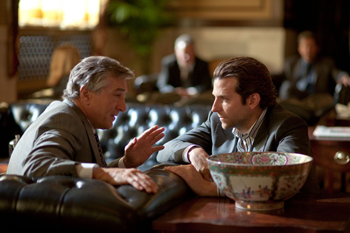
But that is where the similarities between the book and the film end. Unlike Limitless, The Dark Fields is dystopic, another reminder that there is no such thing as a free trip. It is primarily a book about addiction. Eddie is a former coke-head, and he knows better than to take a pill he knows nothing about. Out of desperation he does so anyway and soon becomes addicted, as much to the idea of finally getting a high without all the usual side effects as he is to the new version of himself. Glynn seems to understand the inherent dangers of trying to transcend the banal permanently. Eddie’s brain works overtime, but it is too much for him: he cannot account for hours at a time, and during those hours he is doing a lot of stuff he can’t remember. He has sex with and then murders a woman who he can barely remember meeting. After talking to his ex-wife Melissa, herself an NZT burnout, he discovers that everyone who has taken the drug has either died or is in the process of dying. He also learns that he has been used as a guinea pig by a drug manufacturer who is testing the product illegally and has now cut him off. Since he knows he will die without the drug, he tries to acquire enough of the product to stay sharp enough to learn how to manufacture it himself. Before he can do that, the authorities are closing in on him for two murders: the woman and a loan shark he had relied upon to get ahead. The book ends with him taking just enough of the drug to help him finish typing the story into his computer before he dies. Eddie is lost, and, wishing it could “mean what it says,” he pushes the save button on his computer.
The Eddie of The Dark Fields is a dead man who has left behind a manuscript that describes the folly of his overreaching as compellingly as Victor Frankenstein had described his. Not so the Eddie in Limitless. Sure, someone killed the woman, but the film suggests it may not have been Eddie; regardless, he gets let off the hook when the only witness fails to identify him in a lineup. He kills the loan shark, but doesn’t get blamed for that either. While most of the movie is spent tracking his frantic efforts to secure enough of the drug to keep him going, in the end it doesn’t matter. Instead, the movie jumps twelve months into the future when the still snazzy Eddie is about to be elected senator. While in his campaign headquarters, he is visited by the powerful owner of the company that clandestinely manufactures NZT, Van Loon (Robert DeNiro). Van Loon seems to have him under his thumb, offering a supply of the drug in exchange for political favors. Time to pay the piper, the audience thinks. But not in America: Eddie, it turns out, is still cognitively souped-up but doesn’t need NZT to get there now. Just as his supply had begun to dwindle, he tweaked the ingredients, and enabled himself to go off of the drug—but with the lasting effects of a changed brain! In other words, Eddie somehow achieved extreme neuroplasticity: with the help of NZT, his brain quickly evolved into a newly enhanced form that does not need the drug and that experiences no ill effects from using it. Eddie is now a walking version of the transhumanist superman. He is humanity+, and his prospects are limitless. The movie ends with him speaking Chinese in a restaurant, impressing his newly reacquired girlfriend.
No one who has seen even just a few Hollywood blockbusters can be surprised by this ending, but in the midst of a biotechnological revolution the ending might be less innocuous than it seems. The revolution, especially when it comes to psychopharmaceuticals, is fueled as much by the promise of enhancement without side effects as it is by the desire to treat known disorders. As neuroscientific discoveries link more and more of our behavior to specific locations in the brain, more Americans are lured by the idea that one day, finally, all of our most pressing problems will be solved by taking a pill or tweaking our genes. The Chronicle of Higher Education recently reported that increasing numbers of professors are taking Ritalin (a drug normally prescribed for ADHD) to get their jobs done (10 April 2005); and in her book Unbearable Weight, Susan Bordo reported that many academics who scoff at plastic surgery would stand in line for a pill that gave them a few more IQ points.
Do these things really matter that much? Will popping a pill like NZT, should one be developed, be substantially different from taking caffeine, the most regularly-used stimulant? The difference might be that caffeine has long been widely available to everyone without a prescription, and its effects are fully known. It is much less clear what will happen when the availability of new drugs raises the bar of our expectations for productivity, energy, or even just being happy. What we call a “problem” is likely to expand to follow these new expectations. For example, new expectations for human productivity might one day mean that it is now a problem that it takes me three years instead of three months to write a book, or that I cannot remember everything that I read, or that I have to “waste” eight hours a day sleeping. By removing all the warnings, films like Limitless encourage viewers to keep pressing on biotechnology to give them, finally, the edge they deserve. As the Canadian philosopher George Grant observed, when technology solves one problem, it creates another, which it is then obliged to turn to technology to solve, and so on. This story of ever-increasing expectations for biotechnology is, perhaps, the only thing that is certain to be limitless.
One effect of being offered this narrative again and again is that the thinking of groups like the Transhumanists does not seem so outré any more. Transhumanists are a group of people scattered across several organizations who believe that humanity needs to evolve to the next stage of life, to become posthuman through the use of technologies such as psychopharmaceuticals. Nick Bostrom is one of the more articulate to hold this vision. In “Why I Want to be Posthuman When I Grow Up,” he offers a vignette of what being enhanced would look like:
You also discover a greater clarity of mind. You can concentrate on difficult material more easily and it begins making sense to you. You start seeing connections that eluded you before. You are astounded to realize how many beliefs you had been holding without ever really thinking about them or considering whether the evidence supports them. You can follow lines of thinking and intricate argumentation farther without losing your foothold. Your mind is able to recall facts, names, and concepts just when you need them. You are able to sprinkle your conversation with witty remarks and poignant anecdotes. Your friends remark on how much more fun you are to be around. Your experiences seem more vivid. When you listen to music you perceive layers of structure and a kind of musical logic to which you were previously oblivious; this gives you great joy. You continue to find the gossip magazines you used to read amusing, albeit in a different way than before; but you discover that you can get more out of reading Proust and Nature. You begin to treasure almost every moment of life; you go about your business with zest; and you feel a deeper warmth and affection for those you love, but you can still be upset and even angry on occasions where upset or anger is truly justified and constructive.
The similarity between this vision and Eddie’s experience is obvious. What is astonishing about Bostrom’s version is its assumption that being enhanced would necessarily lead people to treasure more of the moments in their lives. The easy link between changing oneself for the better and being happy (finally!) because of that change has been a part of American mythology from the beginning. Though their labels (transhumanist, posthumanist, extropians) can be tricky, these ideas are really only extreme versions of a belief that has become increasingly prevalent in the so-called “man on the street” American: that the human body is plastic, ready for the next improvement, and that the brain is a computer, ready for the next upgrade. Films like Limitless reveal how many Americans already believe this to be true without any sense of the monumental shift it represents in how they think about themselves, their moral choices, their productivity, their happiness. This change does not come without cost, but Americans seem as unaware of the cost as we are of this sea change in our thinking.
It is not surprising, then, that among the many implications of this sea change, the most dangerous are the most invisible. The biggest problem with the idea of cognitive enhancement may not be in the technology itself, but in its promise. In overvaluing speed, energy, productivity, and perception, it devalues the quotidian and banal reality we have to live with every day, regardless of what drugs we may take or gadgets we may use. I am going to call this the “Dead Poets Society” effect. I had the unfortunate pleasure of beginning my career teaching English in 1990, one year after this movie came out. Although I was also young and idealistic, and wanted to believe that I could inspire students to love poetry like Robin Williams did, I soon recognized that Hollywood cheats teachers by making students think that teaching and learning can be exhilarating all the time. It collects all the inspired moments, which as we academics know, come rarely and only after lots of hard work, and condenses them into a nonstop, rollercoaster-ride narrative. (One tenth-grader even wrote on her student evaluation: “Why can’t this class be more like Dead Poets Society?” While I am not sure this helped me to improve as a teacher, it certainly taught me to dread reading student evaluations.) The point is that no one who is trying to learn how to live and learn and grow in our flawed human society—which should be every single one of us—profits from thinking that life can ever be all on, all the time. This is why Glynn’s novel is really about the nature of addiction, not the promise of biotechnology. Addiction has a biochemical component to be sure, but what starts people down that road is dissatisfaction with life as it is, and the promise of something more. When a potential addict gets a taste of enhanced life, he naturally wants more and more, until he cannot tolerate his former existence at all. It may be that when treated carelessly, what psychopharmaceuticals spur most of all is not an addiction to a particular drug, but to the promise of a different life. The more that drugs promise an enlightened future, the more dissatisfaction with the unenlightened present grows. The fragmented and incomplete present pales in comparison to the mystical wholeness that is the future. Ironically, there is no freedom in that narrative.
That Limitless so thoroughly missed this boat is nowhere more clear than in its avoidance of Glynn’s original title and corresponding epigraph, taken from F. Scott Fitzgerald’s The Great Gatsby. The epigraph is taken from the end of the novel, after Gatsby has died and the illusion of his life as perfectly magnificent has been exposed. The narrator reflects that Gatsby “had come a long way to this blue lawn, and his dream must have seemed so close that he could hardly fail to grasp it. He did not know that it was already behind him, somewhere back in that vast obscurity beyond the city, where the dark fields of the republic rolled on under the night.” Glynn makes Eddie into a contemporary Gatsby; he is reaching out to the “orgiastic future that year by year recedes before us,” ignoring the fact that what he is reaching for is, by definition, unattainable, an illusion. The dream is already behind him, in the “dark fields of the republic.” What exactly Fitzgerald meant by this ending is debatable, but Glynn has obviously used the image to signify that Eddie, as full of perception and insight as he becomes, has reached too far in the wrong direction. The narrative is one of the oldest and most important morality tales we have: human overreaching is always costly. Though not in twenty-first century America, apparently: the only thing that Leslie Dixon does with Fitzgerald’s foreboding dark fields in her screenplay is to rework them into a title that Eddie is selling to describe his political ascent: The Dark Fields Illumined.
While many transhumanists concede that there may be upper limits to cognitive enhancement, or side effects to certain drugs, they never consider the deleterious effects that the desire to be all on, all the time might have on people. The effect of this desire is a metaphysical issue, not a scientific one, an issue that St. Augustine noticed back in 397AD, although he certainly wasn’t dreaming of the availability of technology to manufacture such ecstatic states. Augustine thought about the theological ramifications of transcendence in a way that Bostrom and others have not adequately considered, and so his Confessions have an odd new salience today. In book four, Augustine begins to plead with his soul to recognize that it has misnamed its true desire, which is a desire for God, as a series of false replacements. He urges his soul not to trust the desires of the flesh, because they give partial knowledge. “To punish you a just limit has been fixed for the senses of your body,” he writes, and if this were not so, Augustine reasons, his soul would end up wanting something that is not possible here on earth: for the present moment to pass away. This is a complicated passage, but part of what Augustine understands is that to achieve the cognitive wholeness of super perception (to be all on, all the time, seeing all) is necessarily to transcend time and live in an eternal state. So to want this is to want something that is neither possible nor desirable for a created being in the here and now. Augustine views the limits God has placed on the senses (at least here) as a punishment, but whether they are there to punish humans or simply because they are inevitable in created beings who live in time, it is not a coherent state for human beings to sacrifice the limits of life in the present moment for some greater whole. Led by Augustine, we can ask: can a human existence that is incoherent in this way ever be a happy existence? It might end up being more of a curse. It might even be the definition of insanity.
Augustine does not explore the issue further. Instead, he resolves it in a way that will never appeal to contemporary audiences. He resolves it by telling his soul that it should thank God for its limits because the limits teach him that what his soul really desires is God himself. God is the only limitless being. Dixon’s screenplay suggests that what Americans want more than God is a god-like existence. Rather than turning to Jesus Christ, who taught the apostle Paul that God’s power is made perfect in weakness, Americans will go on aiming to be stronger, smarter, and limitless. We will continue to have the attitude—and results—that F. Scott Fitzgerald noticed nearly one hundred years ago:
“It eluded us then, but that’s no matter—tomorrow we will run faster, stretch out our arms farther.... And one fine morning—
So we beat on, boats against the current, borne back ceaselessly into the past.”
Christina Bieber Lake is Associate Professor of English at Wheaton College.
Works Cited
Bordo, Susan. Unbearable Weight: Feminism, Western Culture, and the Body. Berkeley: University of California Press, 1993.
Bostrom, Nick. “Why I Want to be a Posthuman When I Grow Up.” In Medical Enhancement and Posthumanity, Bert Gordijn and Ruth Chadwick, eds., 107–137. New York: Springer, 2008.
Glynn, Alan. The Dark Fields. London: Little, Brown, and Company, 2001.
Monastersky, Richard. “Many Academics Use Drugs to Enhance Their Brain Power, Survey Suggests.” Chronicle of Higher Education (10 April 2008).


